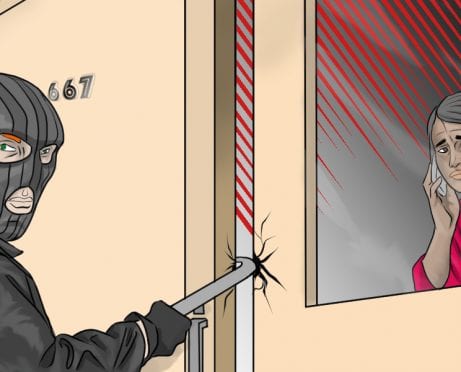
The Morris-Jumel Mansion, Manhattan’s oldest house. Photo by Evan Sachs
For some people, homeowners insurance is a small portion of their monthly housing costs. For others, it’s a relatively large piece. If you’re looking to buy a home, you need to have at least a rough estimate of how much it will cost so that you can determine if the house you’re considering fits within your budget. If you put in an offer on a house without investigating the homeowners insurance cost first, you may end up spending much more on your housing than you anticipated.
While you may think that most homes in the same area would have roughly the same premiums, you could be sorely mistaken. Before I owned a home, I figured insurance rates would vary by state and home value, but I never realized how many factors actually determine your homeowners insurance cost.
What Opened Our Eyes to Homeowners Insurance Costs
My wife and I quickly figured this out with the first two homes we owned. The first house we purchased was just $79,000, but it was three blocks from the beach in Florida and built in 1984.
You wouldn’t think it would cost much to insure such an inexpensive home, but we ended up having to pay over $1,900 in the first year.
Why? Hurricanes. Because our home was so old, it wasn’t built to the current wind-code standards, which made the home much riskier in the eyes of insurers.
A couple of years later, we moved just eight miles away to a house that cost almost $200,000. This one was built in 2004, so it was constructed according to a more recent set of building codes. It was also a bit farther inland, away from the risks associated with living so close to the beach. If the premium increased based on the value of the home, our new premium would have cost $4,840 per year. Instead, it only cost us $1,581 per year.
What Affects Your Homeowners Insurance Rates?
The factors affecting homeowners insurance rates can vary from region to region. However, there are a few items that universally affect the cost of homeowners insurance, though how much they affect your personal premium may vary, Here are a few things to consider when looking at purchasing a house:
- Location
- Building methods
- Size
- Type of insurance policy
- Miscellaneous items
1. Where Is Your Home?
The exact location of your house could make a huge difference on your premiums depending on the risks of that area. The greater your chance of filing a costly claim, the higher your insurance rate is likely to be.
For instance, if you live close to a highly rated fire station and have a fire hydrant in your front yard, you’re at lower risk of a fire completely burning down your house. That, in turn, will impact your homeowners insurance cost.
2. How Was the House Built?
The specifics about how your home was built matter, too. The house’s age will determine the codes that it was built to. Your insurer will take into account the construction quality and materials used to build it, as well as the type of construction, such as whether it’s a frame or masonry house. Insurers even care what type of roof you have. (Is it a gable roof? A hip roof? What materials is it made of?)
 3. How Big Is Your House?
3. How Big Is Your House?
The size of your home is often a large factor. The bigger the home, the more expensive it will be to rebuild in the case of a total loss. Square footage is often used with an estimated price per square foot to rebuild to help calculate the total value of your home. This value can then be used to determine your insurance coverage limit.
4. What Kind of Policy Do You Have?
Your premiums will also depend on your particular policy. If you pick a high-deductible policy, your premiums will be lower than if you pick one with low deductibles. Similarly, if you pick replacement-cost coverage, you’ll pay more than if you simply have actual-cash-value coverage.
5. What Miscellaneous Items Can Affect Your Rates?
If you or your home qualifies for discounts, that can help lower your premium, as well.
Insurers might also take your credit and claims histories into account, as well as the property’s claims history. Plus, you may want to avoid properties with swimming pools or trampolines. Both of these are big risks to insurers and will likely raise your rates.
Don’t Forget About Flood Insurance!
If you live in a flood zone, your lender may require you to purchase flood insurance. This can get very expensive, so make sure to factor it into your calculations, as well. Even if you don’t live in a flood zone, your house could flood in a freak weather event. Flooding generally isn’t covered in homeowners insurance policies, so you may want to get flood insurance, anyway.
The Bottom Line
Don’t wait to be shocked by insurance rates until after you fall in love with a house and make an offer on it. Get a quote on homeowners insurance before you make your offer, and you could save yourself some cash — not to mention the major headache of backing out of a sales contract.










